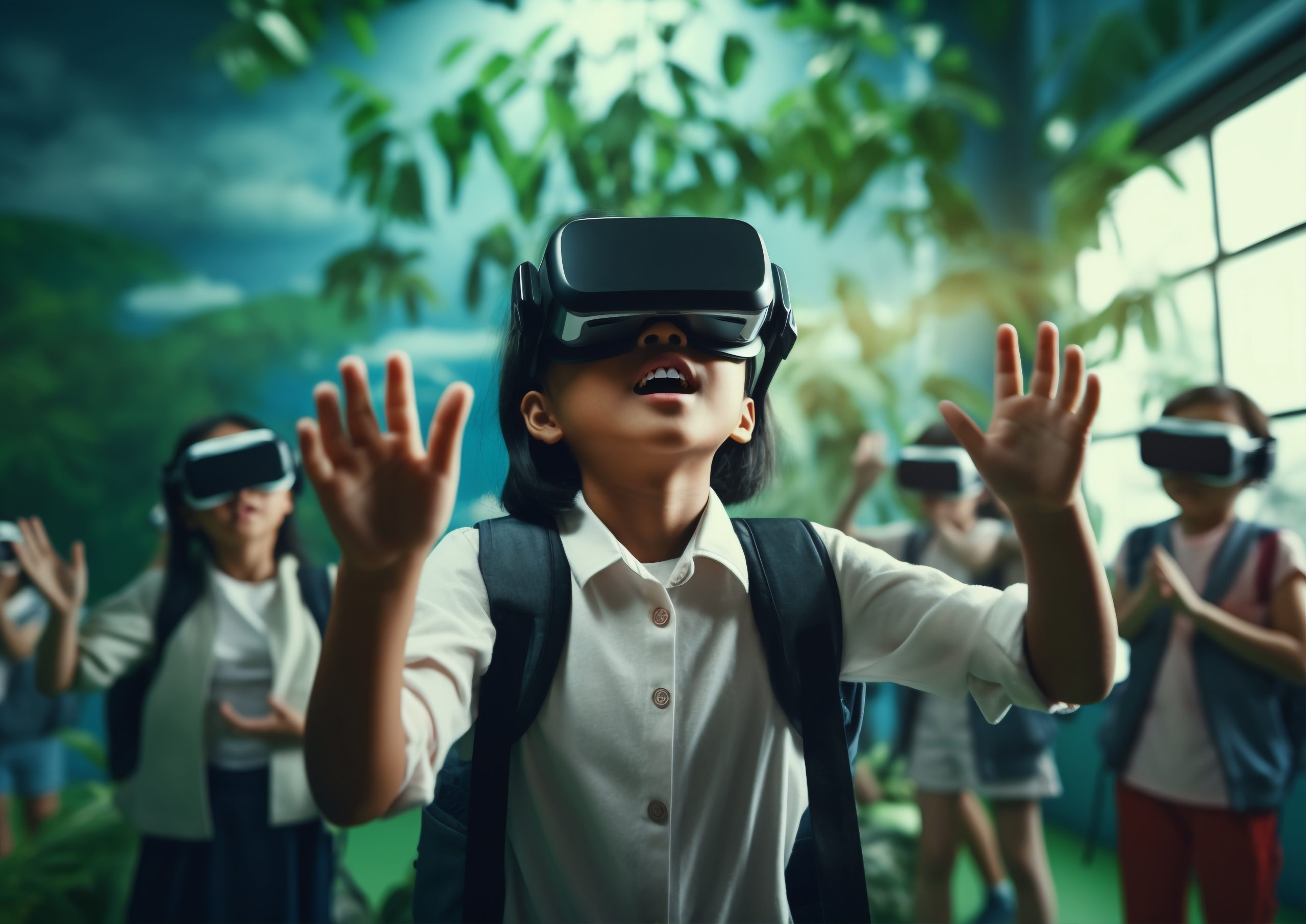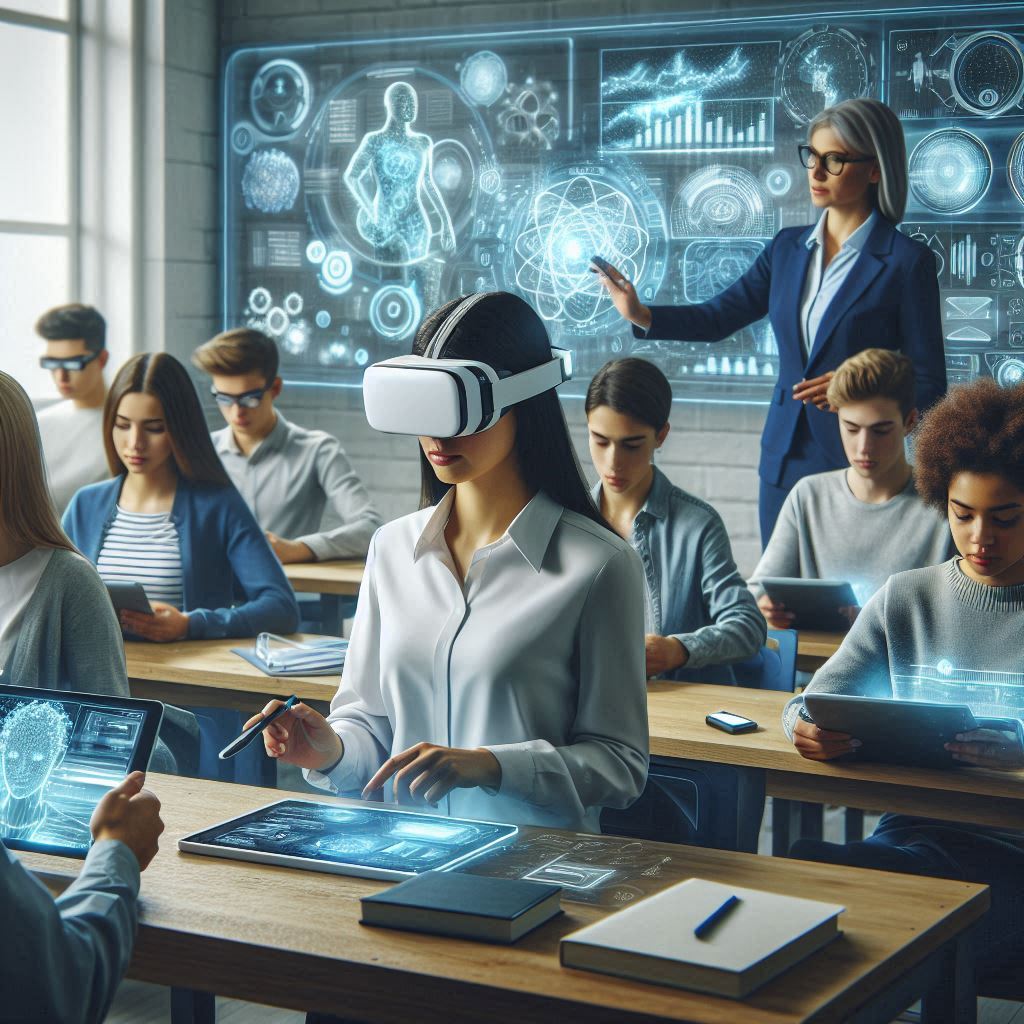
How AI is Revolutionizing Higher Education
- Posted by Cicada Sign
- Categories Blog
- Date August 25, 2024
- Comments 1 comment
In the rapidly evolving world of education, Artificial Intelligence (AI) is making a significant impact by transforming how students learn, how educators teach, and how institutions operate. AI technologies, with their ability to analyze vast amounts of data and automate complex tasks, are reshaping the higher education landscape in numerous ways. In this blog post, we explore the transformative impact of AI on higher education, shedding light on both the opportunities and challenges that come with integrating AI into the academic environment.
AI-Powered Learning Tools:
AI has introduced a range of innovative learning tools that personalize the education experience for students. Adaptive learning platforms, for example, utilize AI algorithms to analyze a student’s performance and adapt the curriculum to suit their learning pace and style. This ensures that each student receives a tailored educational experience, which can significantly enhance understanding and retention of knowledge.
These tools also provide real-time feedback, allowing students to immediately identify areas of improvement. This personalized approach not only improves learning outcomes but also keeps students engaged and motivated.
Revolutionizing Assessment and Evaluation:
AI is transforming the assessment process by providing more objective and comprehensive evaluation methods. Automated grading systems, powered by AI, can evaluate essays, quizzes, and exams with speed and accuracy, freeing up valuable time for educators to focus on teaching and mentoring.
Moreover, AI-driven analytics can identify trends and patterns in student performance, helping educators to pinpoint common challenges and tailor their teaching strategies accordingly. This data-driven approach can lead to more effective teaching methods and improved student success rates.
Enhancing Administrative Efficiency:
Beyond the classroom, AI is streamlining administrative tasks, making processes more efficient and less time-consuming. Chatbots and virtual assistants are being used to handle routine queries from students, such as enrollment procedures, course information, and campus services. This not only reduces the workload on administrative staff but also ensures that students receive timely responses to their queries.
AI also plays a crucial role in resource management, helping institutions optimize the use of their facilities, manage schedules, and even predict future trends in student enrollment. By leveraging AI for these tasks, institutions can operate more efficiently and effectively.
Supporting Accessibility and Inclusion:
One of the most significant impacts of AI in higher education is its ability to support accessibility and inclusion. AI technologies, such as speech-to-text and text-to-speech, are breaking down barriers for students with disabilities, making education more inclusive.
For Deaf students, AI-powered sign language recognition and translation tools are bridging communication gaps, enabling them to participate fully in classroom discussions and activities. These advancements not only foster a more inclusive learning environment but also empower students with disabilities to achieve their full potential.
Challenges and Ethical Considerations:
While the benefits of AI in higher education are immense, it is essential to consider the challenges and ethical implications of its use. Issues such as data privacy, algorithmic bias, and the potential for job displacement among educators and administrative staff must be addressed.
Institutions need to establish ethical guidelines for the use of AI, ensuring that it is implemented in a manner that respects student privacy, promotes fairness, and maintains the human touch that is crucial in education. As AI continues to evolve, it is vital for educators, policymakers, and technologists to work together to create an equitable and inclusive educational landscape.
AI is undoubtedly revolutionizing higher education, offering new opportunities for personalized learning, efficient administration, and increased accessibility. However, as we embrace these technological advancements, it is crucial to navigate the challenges and ethical considerations thoughtfully. By doing so, we can harness the power of AI to create a more effective, inclusive, and dynamic education system for all.

I Letter in ASL
AI is not just a tool for learning; it's a partner in education, transforming how we teach and how students learn, adapt, and grow.

By integrating AI into the education system, we can create a more inclusive and personalized learning experience that empowers every student to achieve their full potential.
You may also like
Leave A Reply Cancel reply
You must be logged in to post a comment.




1 Comment